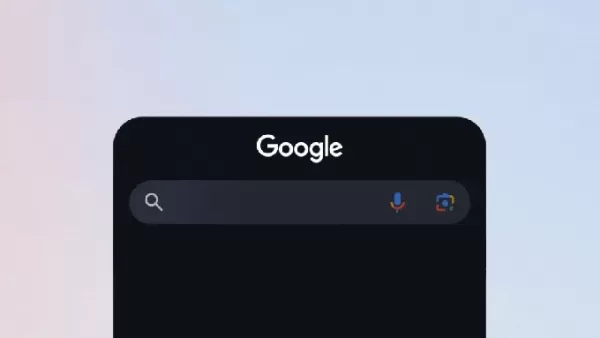Google Search Introduces 'AI Mode' for Complex, Multi-Part Queries
Google Unveils "AI Mode" in Search to Rival Perplexity AI and ChatGPT
Google is stepping up its game in the AI arena with the launch of an experimental "AI Mode" feature in its Search engine. Aimed at taking on the likes of Perplexity AI and OpenAI's ChatGPT Search, this new mode was announced on Wednesday and is designed to let users delve into complex, multi-faceted questions right from the Search interface.
Starting this week, Google One AI Premium subscribers can access AI Mode through Search Labs, Google's hub for experimental features. The mode leverages a tailored version of Gemini 2.0, enhancing its ability to handle questions that require deeper exploration and comparisons, thanks to its advanced reasoning, thinking, and multimodal capabilities.
For example, if you're curious about sleep tracking, you could ask, "What’s the difference in sleep tracking features between a smart ring, smartwatch, and tracking mat?" AI Mode would then provide a thorough comparison, complete with links to the source articles. You could follow up with, "What happens to your heart rate during deep sleep?" to keep the exploration going.

Image Credits:Google
Google explains that previously, such detailed comparisons or explorations would have required multiple searches. Now, with AI Mode, users can tap into web content, real-time data from the Knowledge Graph, and shopping information for billions of products all at once.
Robby Stein, VP of Product at Google Search, shared with TechCrunch that testing has shown users are asking questions that are about twice as long as typical search queries, with follow-ups occurring about a quarter of the time. "And so they’re really getting at these maybe harder questions, ones that need more back and forth, and we think it creates an expanded opportunity to do more with Google Search, and that’s what we’re really excited about," Stein said.
The introduction of AI Mode comes on the heels of the successful rollout of AI Overviews, which provide a snapshot of information at the top of search results. Feedback from users indicated a desire for more AI-powered answers across a broader range of searches, prompting Google to launch AI Mode.
AI Mode operates using a "query fan-out" technique, which simultaneously conducts multiple related searches across various data sources and then compiles the results into a coherent, easy-to-understand response.

Image Credits:Google
Stein emphasized the model's focus on factuality and the ability to back up its statements with verifiable information, especially in sensitive areas like health. "So this might be health, as an example, and where it’s not confident, it actually might just respond with a list of web links and web URLs, because that’s most helpful in the moment," he explained. "It’s going to do its best and just be most helpful given the context of the information available and how confident it can be in the reply. This does not mean it will never make mistakes. It is very likely that it will make mistakes, as with every new kind of new and cutting-edge AI technology that’s released."
As this is an early experiment, Google plans to refine the user experience and expand the functionality of AI Mode. The company aims to make the experience more visual and to include information from a variety of sources, including user-generated content. Google is also training the model to decide when to include hyperlinks (e.g., for booking tickets) or when to prioritize images or videos (e.g., for how-to queries).
Google One AI Premium subscribers can access AI Mode by opting into Search Labs and then entering a question in the Search bar and tapping the "AI Mode" tab. Alternatively, they can go directly to google.com/aimode. On mobile devices, the feature is accessible by opening the Google app and tapping the "AI Mode" icon below the Search bar on the home screen.
Alongside the AI Mode announcement, Google also revealed the launch of Gemini 2.0 for AI Overviews in the U.S. This update will enhance AI Overviews' ability to tackle more challenging questions, including those related to coding, advanced math, and multimodal queries. Additionally, Google has made AI Overviews accessible without a sign-in requirement and is now rolling out the feature to teen users as well.
Related article
 Google's Gemini app adds real-time AI video, Deep Research, and new features (120 chars)
Google unveiled significant Gemini AI enhancements during its I/O 2025 developer conference, expanding multimodal capabilities, introducing next-generation AI models, and strengthening ecosystem integrations across its product portfolio.Key Gemini Li
Google's Gemini app adds real-time AI video, Deep Research, and new features (120 chars)
Google unveiled significant Gemini AI enhancements during its I/O 2025 developer conference, expanding multimodal capabilities, introducing next-generation AI models, and strengthening ecosystem integrations across its product portfolio.Key Gemini Li
 Trump Prioritizes AI Growth Over Regulation in Race to Outpace China
The Trump administration unveiled its landmark AI Action Plan on Wednesday, marking a decisive break from the Biden administration's risk-averse AI policies. The ambitious blueprint prioritizes aggressive infrastructure development, sweeping regulato
Trump Prioritizes AI Growth Over Regulation in Race to Outpace China
The Trump administration unveiled its landmark AI Action Plan on Wednesday, marking a decisive break from the Biden administration's risk-averse AI policies. The ambitious blueprint prioritizes aggressive infrastructure development, sweeping regulato
 Nonprofit leverages AI agents to boost charity fundraising efforts
While major tech corporations promote AI "agents" as productivity boosters for businesses, one nonprofit organization is demonstrating their potential for social good. Sage Future, a philanthropic research group backed by Open Philanthropy, recently
Comments (5)
0/200
Nonprofit leverages AI agents to boost charity fundraising efforts
While major tech corporations promote AI "agents" as productivity boosters for businesses, one nonprofit organization is demonstrating their potential for social good. Sage Future, a philanthropic research group backed by Open Philanthropy, recently
Comments (5)
0/200
![EdwardSmith]() EdwardSmith
EdwardSmith
 August 26, 2025 at 1:01:20 PM EDT
August 26, 2025 at 1:01:20 PM EDT
Google's AI Mode sounds cool, but can it really outsmart ChatGPT? I'm curious if it'll handle my random late-night questions better! 😄


 0
0
![AnthonyMiller]() AnthonyMiller
AnthonyMiller
 August 14, 2025 at 9:00:59 AM EDT
August 14, 2025 at 9:00:59 AM EDT
This AI Mode from Google sounds like a game-changer! I love how it tackles complex queries—makes me wonder if it'll outsmart my usual search struggles. 😎 Excited to try it out!


 0
0
![DonaldRoberts]() DonaldRoberts
DonaldRoberts
 August 13, 2025 at 7:00:59 PM EDT
August 13, 2025 at 7:00:59 PM EDT
This AI Mode sounds intriguing! Google's finally catching up to the conversational AI trend. Wonder how it stacks up against ChatGPT in real-world searches? 🤔


 0
0
![BillyGarcía]() BillyGarcía
BillyGarcía
 August 6, 2025 at 3:01:00 PM EDT
August 6, 2025 at 3:01:00 PM EDT
Google's AI Mode sounds cool, but can it really outsmart ChatGPT? I’m curious if it’ll handle my weird, niche queries without choking! 😄


 0
0
![RobertRamirez]() RobertRamirez
RobertRamirez
 August 6, 2025 at 1:01:00 PM EDT
August 6, 2025 at 1:01:00 PM EDT
This AI Mode sounds cool, but can Google really outsmart ChatGPT at its own game? 🤔 I’m curious to see how it handles my super niche research questions!


 0
0
Google Unveils "AI Mode" in Search to Rival Perplexity AI and ChatGPT
Google is stepping up its game in the AI arena with the launch of an experimental "AI Mode" feature in its Search engine. Aimed at taking on the likes of Perplexity AI and OpenAI's ChatGPT Search, this new mode was announced on Wednesday and is designed to let users delve into complex, multi-faceted questions right from the Search interface.
Starting this week, Google One AI Premium subscribers can access AI Mode through Search Labs, Google's hub for experimental features. The mode leverages a tailored version of Gemini 2.0, enhancing its ability to handle questions that require deeper exploration and comparisons, thanks to its advanced reasoning, thinking, and multimodal capabilities.
For example, if you're curious about sleep tracking, you could ask, "What’s the difference in sleep tracking features between a smart ring, smartwatch, and tracking mat?" AI Mode would then provide a thorough comparison, complete with links to the source articles. You could follow up with, "What happens to your heart rate during deep sleep?" to keep the exploration going.

Google explains that previously, such detailed comparisons or explorations would have required multiple searches. Now, with AI Mode, users can tap into web content, real-time data from the Knowledge Graph, and shopping information for billions of products all at once.
Robby Stein, VP of Product at Google Search, shared with TechCrunch that testing has shown users are asking questions that are about twice as long as typical search queries, with follow-ups occurring about a quarter of the time. "And so they’re really getting at these maybe harder questions, ones that need more back and forth, and we think it creates an expanded opportunity to do more with Google Search, and that’s what we’re really excited about," Stein said.
The introduction of AI Mode comes on the heels of the successful rollout of AI Overviews, which provide a snapshot of information at the top of search results. Feedback from users indicated a desire for more AI-powered answers across a broader range of searches, prompting Google to launch AI Mode.
AI Mode operates using a "query fan-out" technique, which simultaneously conducts multiple related searches across various data sources and then compiles the results into a coherent, easy-to-understand response.

Stein emphasized the model's focus on factuality and the ability to back up its statements with verifiable information, especially in sensitive areas like health. "So this might be health, as an example, and where it’s not confident, it actually might just respond with a list of web links and web URLs, because that’s most helpful in the moment," he explained. "It’s going to do its best and just be most helpful given the context of the information available and how confident it can be in the reply. This does not mean it will never make mistakes. It is very likely that it will make mistakes, as with every new kind of new and cutting-edge AI technology that’s released."
As this is an early experiment, Google plans to refine the user experience and expand the functionality of AI Mode. The company aims to make the experience more visual and to include information from a variety of sources, including user-generated content. Google is also training the model to decide when to include hyperlinks (e.g., for booking tickets) or when to prioritize images or videos (e.g., for how-to queries).
Google One AI Premium subscribers can access AI Mode by opting into Search Labs and then entering a question in the Search bar and tapping the "AI Mode" tab. Alternatively, they can go directly to google.com/aimode. On mobile devices, the feature is accessible by opening the Google app and tapping the "AI Mode" icon below the Search bar on the home screen.
Alongside the AI Mode announcement, Google also revealed the launch of Gemini 2.0 for AI Overviews in the U.S. This update will enhance AI Overviews' ability to tackle more challenging questions, including those related to coding, advanced math, and multimodal queries. Additionally, Google has made AI Overviews accessible without a sign-in requirement and is now rolling out the feature to teen users as well.
 Trump Prioritizes AI Growth Over Regulation in Race to Outpace China
The Trump administration unveiled its landmark AI Action Plan on Wednesday, marking a decisive break from the Biden administration's risk-averse AI policies. The ambitious blueprint prioritizes aggressive infrastructure development, sweeping regulato
Trump Prioritizes AI Growth Over Regulation in Race to Outpace China
The Trump administration unveiled its landmark AI Action Plan on Wednesday, marking a decisive break from the Biden administration's risk-averse AI policies. The ambitious blueprint prioritizes aggressive infrastructure development, sweeping regulato
 Nonprofit leverages AI agents to boost charity fundraising efforts
While major tech corporations promote AI "agents" as productivity boosters for businesses, one nonprofit organization is demonstrating their potential for social good. Sage Future, a philanthropic research group backed by Open Philanthropy, recently
Nonprofit leverages AI agents to boost charity fundraising efforts
While major tech corporations promote AI "agents" as productivity boosters for businesses, one nonprofit organization is demonstrating their potential for social good. Sage Future, a philanthropic research group backed by Open Philanthropy, recently
 August 26, 2025 at 1:01:20 PM EDT
August 26, 2025 at 1:01:20 PM EDT
Google's AI Mode sounds cool, but can it really outsmart ChatGPT? I'm curious if it'll handle my random late-night questions better! 😄


 0
0
 August 14, 2025 at 9:00:59 AM EDT
August 14, 2025 at 9:00:59 AM EDT
This AI Mode from Google sounds like a game-changer! I love how it tackles complex queries—makes me wonder if it'll outsmart my usual search struggles. 😎 Excited to try it out!


 0
0
 August 13, 2025 at 7:00:59 PM EDT
August 13, 2025 at 7:00:59 PM EDT
This AI Mode sounds intriguing! Google's finally catching up to the conversational AI trend. Wonder how it stacks up against ChatGPT in real-world searches? 🤔


 0
0
 August 6, 2025 at 3:01:00 PM EDT
August 6, 2025 at 3:01:00 PM EDT
Google's AI Mode sounds cool, but can it really outsmart ChatGPT? I’m curious if it’ll handle my weird, niche queries without choking! 😄


 0
0
 August 6, 2025 at 1:01:00 PM EDT
August 6, 2025 at 1:01:00 PM EDT
This AI Mode sounds cool, but can Google really outsmart ChatGPT at its own game? 🤔 I’m curious to see how it handles my super niche research questions!


 0
0





























